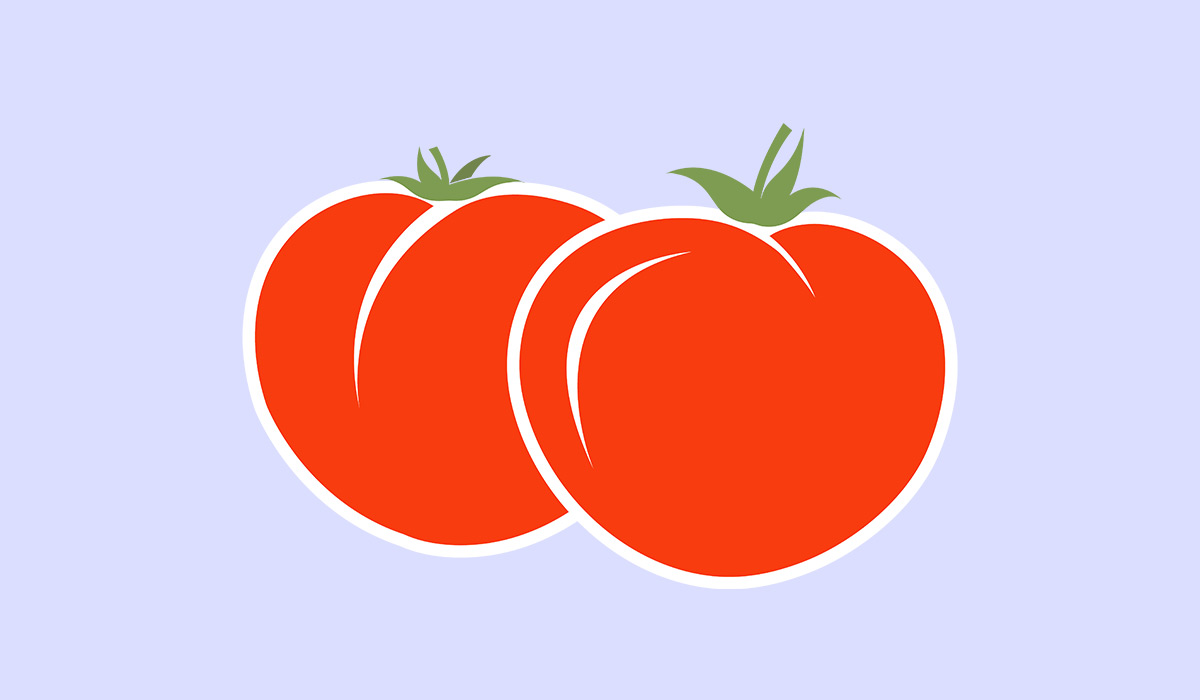- Sodium – occurs in the form of positive ions. Increased thirst is a clear indication of its high concentration.
- Calcium – is responsible for conduction in the nervous system and muscle contractions.
- Potassium – supports the functioning of the cardiovascular system.
- Magnesium – affects the process of contraction of the heart muscle and the proper course of metabolism.
- The functioning of water management in the body – they are responsible for the distribution of water throughout the system and its absorption. The appropriate level of sodium ions allows you to maintain the right amount of water in the intercellular spaces and the cells themselves thanks to osmosis.
- Functioning of the nervous system – they send information between nerve cells. Sodium ions traveling along the neuron stimulate another cell, leading to electrical excitation.
- Acid-base balance – the optimal pH for the body is between 7.35-7.45. Thanks to electrolytes it is possible to maintain a stable alkaline environment. Too much deviation from the given values can lead to a dangerous condition: acidosis or alkalosis.
- Muscular system – calcium ions support muscle contractions, thanks to which their movement is possible, and magnesium ions relax the muscles after exercise.
- muscle tremors and cramps,
- swelling,
- diarrhea or constipation,
- drowsiness,
- lack of energy,
- malaise,
- somnolence,
- headaches,
- muscle aches,
- decrease in muscle strength,
- weakness,
- lack of appetite,
- dizziness,
- nausea,
- bad mood,
- sleep disorders,
- attention deficit disorder.
- fainting,
- convulsions,
- abnormal pressure,
- heart disorders (arrhythmia),
- kidney or liver functioning problems,
- hypertension,
- bone fragility,
- paralysis.
- physical effort (hard work, sport), when the body sweats intensively,
- diarrhea and vomiting,
- drinking too little fluids,
- strict diet,
- diseases with high fever,
- taking diuretics and laxatives.
- drinking water, including highly mineralized water;
- drinking tomato juice;
- eating foodsrich in potassium, calcium, and magnesium (salt, i.e., sodium, we usually provide the body with too much);
- drinking isotonic drinks;
- taking minerals in tablets.
- Electrolytes. NIH.
https://www.ncbi.nlm.nih.gov/books/NBK541123/. - Recommended Dietary Allowances: 10th Edition. NIH.
https://www.ncbi.nlm.nih.gov/books/NBK234935/. - Diet and Health: Implications for Reducing Chronic Disease Risk. NIH.
https://www.ncbi.nlm.nih.gov/books/NBK218740/. - Electrolyte Intake and Major Food Sources of Sodium, Potassium, Calcium and Magnesium among a Population in Western Austria. NIH.
https://www.ncbi.nlm.nih.gov/pmc/articles/PMC7400604/. - Neurologic manifestations of major electrolyte abnormalities. NIH.
https://pubmed.ncbi.nlm.nih.gov/28190443/. - Electrolyte test. NHS.
https://www.nhs.uk/conditions/electrolyte-test/. - Diabetes mellitus and electrolyte disorders. NIH.
https://www.ncbi.nlm.nih.gov/pmc/articles/PMC4198400/. - Fluid and electrolyte needs for training, competition, and recovery. NIH.
https://pubmed.ncbi.nlm.nih.gov/22150427/. - Pediatric Fluid and Electrolyte Therapy. NIH.
https://www.ncbi.nlm.nih.gov/pmc/articles/PMC3460795/. - Electrolyte Balance in Gastrointestinal Disease. NIH.
https://www.ncbi.nlm.nih.gov/pmc/articles/PMC1532601/. - Fluid and electrolytes in the elderly. NIH.
https://pubmed.ncbi.nlm.nih.gov/15090900/. - Nursing Fundamentals. NIH.
https://www.ncbi.nlm.nih.gov/books/NBK591820/. - Alcohol abuse: potential role in electrolyte disturbances and kidney diseases. NIH.
https://pubmed.ncbi.nlm.nih.gov/9582549/. - Treatment for Food Poisoning. NIH.
https://www.niddk.nih.gov/health-information/digestive-diseases/food-poisoning/treatment. - Role of Functional Beverages on Sport Performance and Recovery. NIH.
https://www.ncbi.nlm.nih.gov/pmc/articles/PMC6213308/. - Nutritional Composition and Bioactive Compounds in Tomatoes and Their Impact on Human Health and Disease: A Review. NIH.
https://www.ncbi.nlm.nih.gov/pmc/articles/PMC7823427/. - Multivitamin/mineral Supplements. NIH.
https://ods.od.nih.gov/factsheets/MVMS-Consumer/.
In the extracellular fluid, there are also chloride anions, which regulate the sodium concentration and affect the secretion of gastric acids[/ilj_no_linking]
Electrolytes – properties
The presence of electrolytes in the human body affects:
What are the symptoms of electrolyte deficiency?
The consequences of deficienciesare:
In more severe cases, they may also be:
Electrolytes are especially significant for children, elderly people, and athletes. Their deficiencies quickly lead to dehydration.
Electrolyte imbalance is often caused by:
Electrolytes and hypertension
People with high blood pressure take medication that displaces stored water in their bodies to reduce tissue pressure. However, it’s important to note that frequent urination caused by these medications can flush out valuable nutrients like magnesium and potassium. These nutrients are crucial for the proper functioning of the heart. Therefore, people struggling with hypertensionshould often check the level of electrolytes in the blood and supplement their possible deficiencies.
Electrolytes and diabetes
Some salt ions are an essential ingredient in regulating insulin secretion. Thus, in diabetics, there is a relationship between carbohydrate metabolism disorders and disorders of the water and electrolyte system, which mainly accompany hyperglycemia. Unused glucose by the organs moves fluids and electrolytes contained in them from the cellular space to the extracellular space. This process disturbs the body’s balance and can lead to a severe potassium deficiency – the state is called hypokalemia. Therefore, it is very significant to take the right amount of ions. And in case of deficiencies – remember to use appropriate supplementation.
Electrolytes for athletes
During intensive and regular exercise, as the body sweats, it eliminates excess water and significant salt ions (i.e., electrolytes) that have built up. That is why athletesneed to ensure an adequate supply of valuable ingredients while maintaining proper water and electrolyte balance.
Lost fluids should be consumed in the traditional form of water, providing it with small ones sips into the system, then the effectiveness of hydration increases. However, it turns out that water is often not enough – and during intense effort, it is worth supporting the body with a ready-made electrolyte mixture that will supplement minerals and reduce the risk of dehydration.

Electrolytes for children
Electrolyte deficiencies in childrenvery often occur during accidental digestive system infections. During such ailments as diarrhea or vomiting, remember to systematically refill lost fluids.
In supplementing the amount of electrolytes, it is also significant to use a balanced diet. Products that are a source of potassium include dried fruits (apricots, figs), bananas, potatoes, avocados, kiwi, and tomatoes. Calcium, valuable for bones, can be obtained by including milk and its products (yogurt, kefir, cheese, cottage cheese), sardines, or legumes in the diet. We can supplement magnesium in children by serving them a cocktail based on cocoa, dark chocolate, buckwheat, or oatmeal. Sodium, as one of the few elements, is rarely deficient because it is the basic ingredient of most food products.
Electrolytes for the elderly
Proper hydration is especially significant for maintaining the efficiency of internal organs and well-being. Despite this, many older peoplehave a big problem with the correct dose of fluid intake. Due to the decrease in appetite in seniors, the frequency of thirst also decreases, which can be very dangerous to health.
Urinary system ailments also have an impact on the fact that elderly people deliberately reduce the supply of fluids to the body to get rid of persistent ailments, e.g., pain during urination. In the elderly, the lack of adequate hydration can have immediate effects, such as a general deterioration of well-being and lack of concentration and energy.
Therefore, if a senior is unable to drink the daily water requirement, they should reach for rehydration mixtures that will help to supplement any deficiencies and get rid of the persistent effects of dehydration.
Electrolyte level test
Often malaise is explained by electrolyte deficiency. But to know for sure, you need to make some tests. It is called an ionogram. This is a test of electrolyte concentration. These tests are conducted when there is a suspicion of water and electrolyte imbalance in the body. To perform them, a blood sample will be necessary, as in the case of morphology.
It is recommended to do them in the morning after a 12-hour fast. They help determine the level of electrolytes and guide the selection of appropriate rehydration treatments. It is significant to fast for at least 12 hours before the test for accurate results.
Electrolytes – quantitative study and standards
As mentioned above, we use a test called ionogram when water and electrolyte imbalance is suspected. Collecting venous blood for normal morphology is a quick process. The basic test determines the potassium and sodium levels, but additional parameters can be added to extend the test. The test results show the number of tested ions in a given measurement unit, and for individual minerals, it should meet certain value requirements.
The ionogram is most often performed in hospital conditions to properly select the composition of the irrigation mixture for the patient.
How to replenish electrolytes?
You can refill electrolytes through:
To replenish electrolyte deficiency, you should primarily drink large amounts of highly mineralized water. Potassium deficiency can be easily compensated by eating tomato juices, which are a valuable source of potassium, as well as bananas and dried apricots. A diet that includes pumpkin seeds, cocoa, and almonds will replenish your magnesium levels.
Ready-to-drink electrolyte mixes and mineral tablets are also available on the market. During physical activity, athletes should hydrate themselves with isotonic drinks containing sodium and potassium chlorides. Sleep is also a significant factor that supports the regeneration of the body.
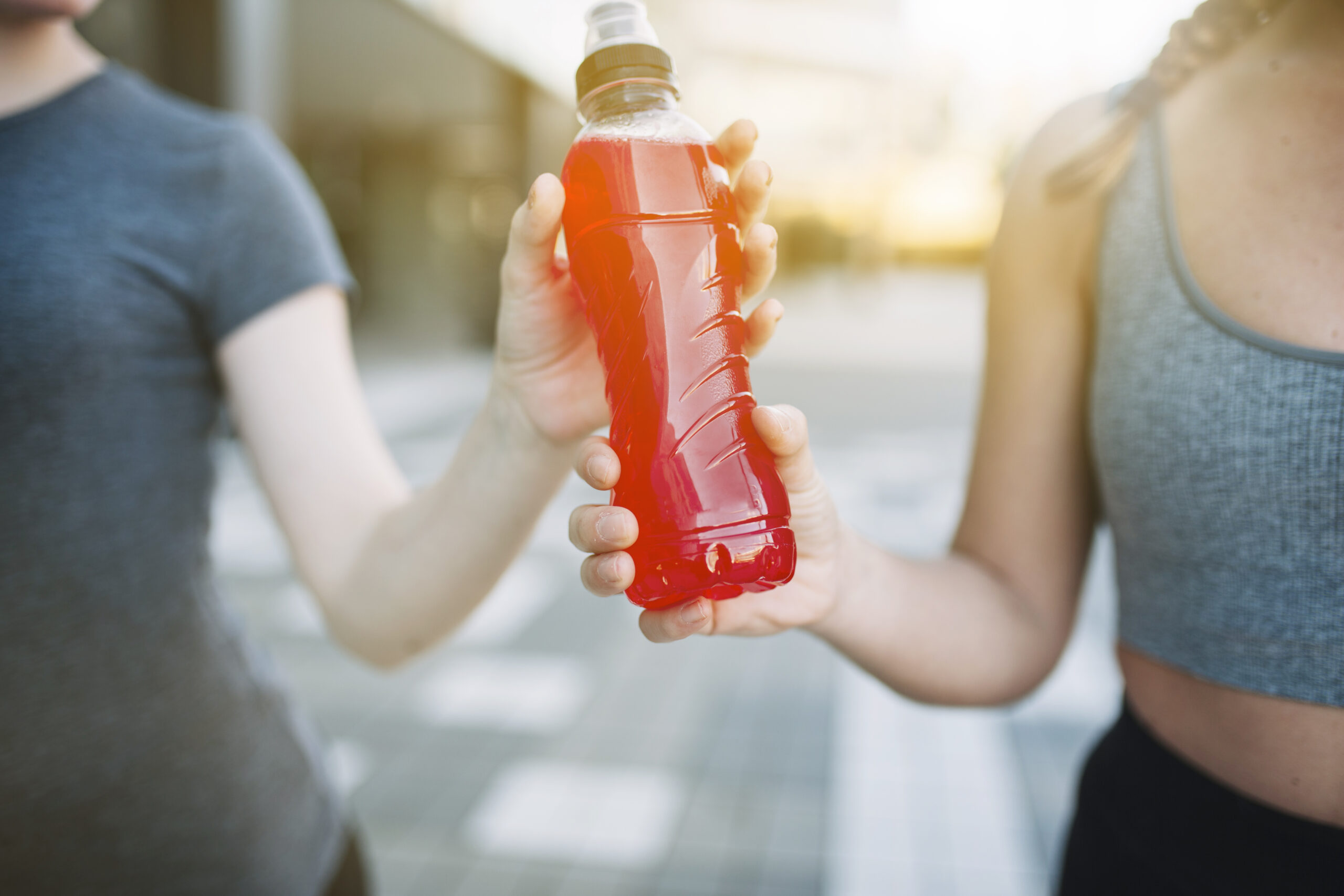
Electrolytes in fruits and vegetables
Electrolytes are not only dietary supplements in the form of ready-made mixtures that regulate the body’s water balance. Consuming fruits and vegetables is a great way to obtain essential nutrients and keep the body hydrated.
Potassium is rich in tomatoes or tomato juice, bananas, and potatoes. Magnesium is found in spinach, kale, and broad beans, while dried figs and broccoli contain calcium. Lettuce and olives will supplement chloride deficiencies. Therefore, including these products in your daily diet will protect you from dehydration and ensure your well-being.
Electrolytes and alcohol
A well-known effect of excessive consumption of alcoholic products is the so-called hangover. Alcohol poisoning is very often manifested by nausea, headache, trembling hands, and general weakness of the body, which is related to dehydration.
Alcohol disrupts hormonal regulation, which means that urine excretion is also associated with the loss of water and beneficial minerals. To reduce the bothersome symptoms of a hangover, you should intensively hydrate your body with still water and take a portion of electrolytes that have been rinsed out. For this situation, consume fresh fruits and vegetables or purchase rehydration solutions from a pharmacy.
Electrolytes and food poisoning
During food poisoning, vomiting or diarrhea occurs, resulting in loss of water and leaching out of sodium, potassium, and glucose. The most important thing is not to let the body become dehydrated because you can end up in the hospital.
Therefore, you should drink plenty of fluids to make up for their deficiency. Because thirst does not make itself felt during stomach ailments, it is worth reaching for electrolytes to quickly put an exhausted body back on its feet.
Electrolytes – contraindications
Although the composition of electrolyte mixtures is simple and contains substances naturally found in the body, there are contraindications to consuming this type of dietary supplement. They should not be used by patients who suffer from cirrhosis of the liver. And people taking loop diuretics, potassium-sparing diuretics, and beta-blockers should consult a doctor about the use of electrolytes.
In addition, people sensitive to some drink ingredients must carefully read the composition of the electrolyte mixture before its consumption.
Electrolytes and isotonic drinks
A person begins to feel thirsty only when the level of dehydration of the body reaches 1.5%. That’s why consuming fluids is so significant long before this reaction. Particular attention should be paid to this fact by people who regularly practice sports. Physically active people often consume drinks that, in addition to electrolytes, contain carbohydrates and these are the so-called isotonic drinks.
Unlike electrolytes and water, isotonic adds energy, which is an additional fuel to be used during training. However, for people on a diet for weight reduction, classic electrolyte preparations are recommended, which do not add unnecessary calories to the diet, but nourish the body with valuable ingredients and maintain an optimal level of hydration.
Electrolytes – what to look for when buying a ready-made mixture?
Before buying electrolytes in a pharmacy, you should familiarize yourself with their composition. Very often you can find preparations that have additional, completely unnecessary items. A dietary supplement should have a short and simple label without artificial sweeteners, flavors, and dyes.
It is also significant that the electrolyte components have the highest bioavailability form, e.g., citrates. The packaging should contain information about the osmolarity of the product. Hypo-osmotic solutions are recommended if there is a risk of dehydration.
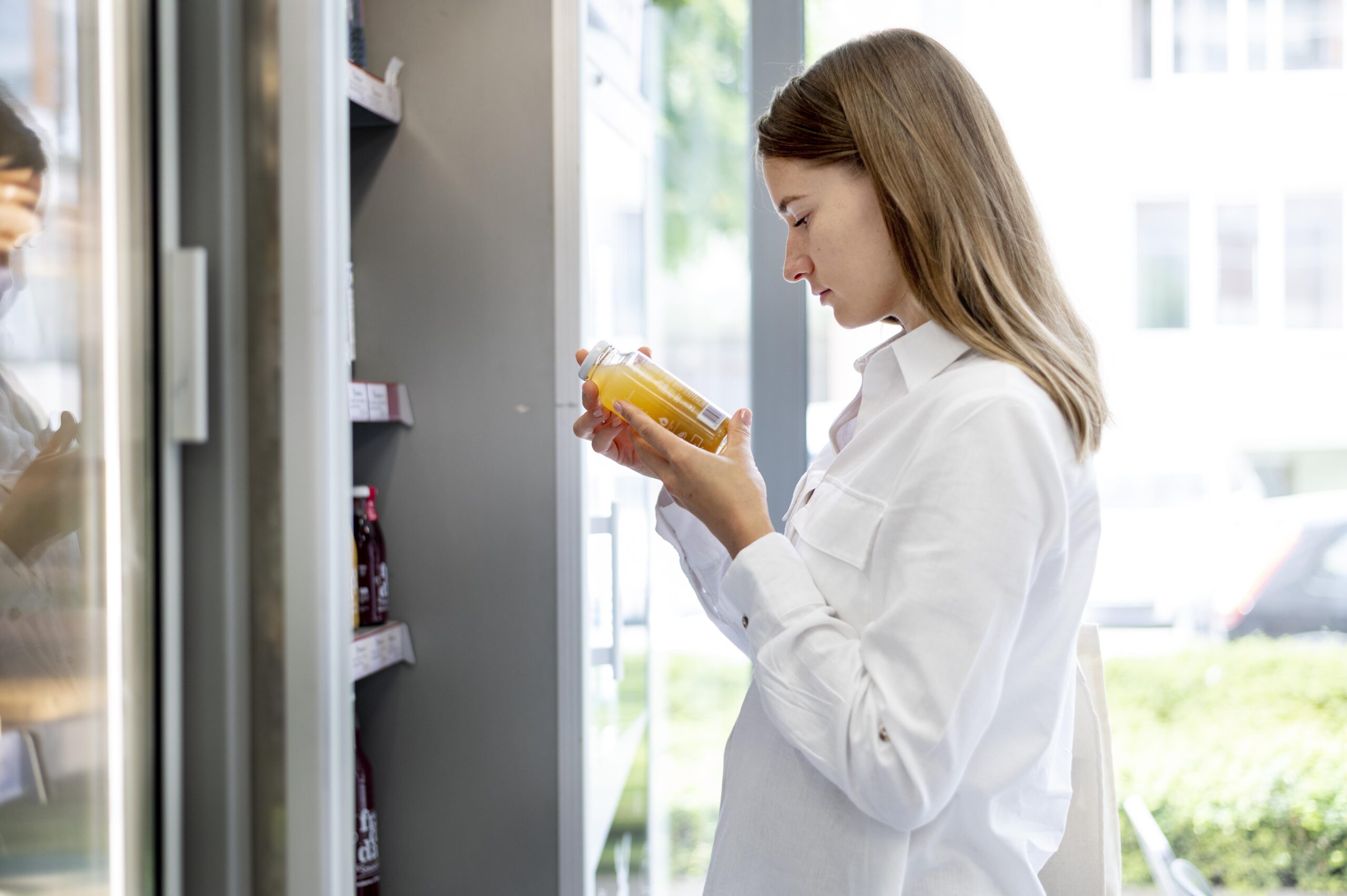
Electrolytes are a significant component of the diet
Electrolytes are a group of elements extremely important for the proper functioning of the entire body. It is worth taking care of the water and electrolyte balance by introducing a minimum of 1.5 l of fluids in the form of still water to your daily diet, as well as fruits and vegetables that will supplement the deficiencies of such salt ions as calcium, potassium, magnesium, sodium, and chlorides.
Particular attention to additional supplementation with hydrating preparations containing electrolytes should be paid to people who regularly practice sports, people suffering from hypertension, diabetes, and those suffering from diarrhea and vomiting. By maintaining the right balance between the elements, you can significantly affect the well-being and proper functioning of the muscular system, nervous system, and heart, as well as maintaining the optimal pH of the body.
Sources
- Electrolytes: Important Functions, Deficiency, and Supplementing
- What is Electrolytes?
- What are the symptoms of electrolyte deficiency?
- Electrolytes and hypertension
- Electrolytes and diabetes
- Electrolytes for athletes
- Electrolytes for children
- Electrolytes for the elderly
- Electrolyte level test
- How to replenish electrolytes?
- Electrolytes and alcohol
- Electrolytes and food poisoning
- Electrolytes – contraindications
- Electrolytes and isotonic drinks
- Electrolytes are a significant component of the diet




